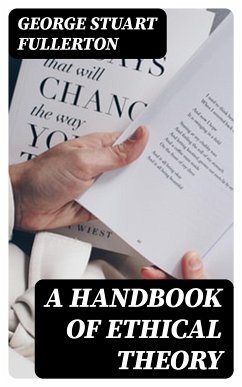In "A Handbook of Ethical Theory," George Stuart Fullerton presents a comprehensive exploration of ethical frameworks that define human morality. Fullerton employs a clear, systematic literary style, organizing complex philosophical ideas into accessible segments that elucidate key ethical theories from utilitarianism to deontology. This text situates itself within the broader context of early 20th-century philosophical discourse, addressing the growing need for a cohesive understanding of ethics amid the tumult of societal change, emphasizing logical rigor while remaining engaging to both laypersons and scholars alike. George Stuart Fullerton, an eminent philosopher and psychologist, was deeply influenced by his academic background in both disciplines, which shaped his approach to moral philosophy. His tenure at Columbia University and extensive engagement with topics of morality and human behavior led him to synthesize a text that not only discusses established theories but also encourages critical thinking about ethical practices in everyday life. Fullerton's perspective is reflective of the shifting paradigms in philosophy during his era, driven by a desire to bridge academic philosophy with practical human concerns. For readers seeking to enhance their understanding of ethics, Fullerton's "A Handbook of Ethical Theory" serves as an indispensable resource. Its lucid exposition of complex ideas invites reflection on moral decision-making in various contexts, making it essential for students, educators, and anyone interested in the foundations of ethical thought.
Dieser Download kann aus rechtlichen Gründen nur mit Rechnungsadresse in A, B, BG, CY, CZ, D, DK, EW, E, FIN, F, GR, H, IRL, I, LT, L, LR, M, NL, PL, P, R, S, SLO, SK ausgeliefert werden.









